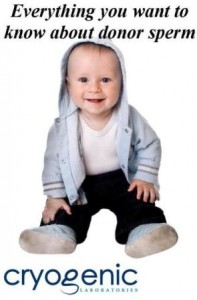From the American Society for Reproductive Medicine (ASRM) fact sheet on Polycystic ovary syndrome (PCOS).
“What risks do women have with PCOS?
Lack of ovulation in women with PCOS results in continuous exposure of their uterine lining (endometrium) to estrogen. This may cause excessive thickening of the uterine lining and possible abnormal bleeding. The bombardment of estrogen without ovulation may lead to uterine cancer or pre-cancer. Metabolic syndrome is more common in women with PCOS. This condition is characterized by abdominal obesity, cholesterol abnormalities, hypertension, and insulin resistance/diabetes mellitus. Each of these increases the risk of heart disease.
Obesity is noted in over 50% of women with PCOS. Diet and exercise that result in weight loss improves the frequency of ovulation, enhances the ability to get pregnant, improves fertility, lowers the risk of diabetes, and lowers androgen levels in many women with PCOS.
How is infertility in women with PCOS treated?
Ovulation may often be induced with clomiphene citrate (CC), an orally-administered fertility medication. If consistent ovulation is not noted with CC, the use of the oral medication letrozole may be considered. Though it is not approved by the Food and Drug Administration for fertility purposes, letrozole appears to be as effective in inducing ovulation as CC, but it can potentially have detrimental effects on a developing fetus so it is important that pregnancy is ruled out before its administration. Gonadotropins (injectable fertility medications) may be used to induce ovulation if CC or letrozole do not result in ovulation or pregnancy. However, gonadotropins are associated with a higher risk of multiple pregnancy and/or overstimulation of the ovaries (ovarian hyperstimulation syndrome). Therefore, PCOS patients must be monitored very carefully when gonadotropins are utilized. In vitro fertilization (IVF) may also be an option for patients with PCOS.
How is PCOS treated in women not actively seeking to become pregnant?
If fertility is not an immediate concern, hormonal therapies are usually successful in temporarily correcting the problems associated with PCOS. Oral contraceptive pills (OCs) are commonly prescribed to reduce hirsutism and acne, maintain regular menstrual periods, prevent endometrial cancer, and prevent pregnancy. OCs may be combined with medications that decrease androgen action, such as spironolactone, to improve hirsutism. Eflornithine® cream has been approved to reduce facial hair and is applied directly on any affected areas on the face. Hair removal methods such as electrolysis and laser are also helpful.
Treatment with medications that increase the body’s sensitivity to insulin, such as metformin, may help improve ovulation and may reduce the risk of developing diabetes or metabolic syndrome. However, metformin should not be used exclusively for fertility purposes.
Overall, treatment for PCOS should be individualized to the needs of the patient.”
ASRM is an excellent resource for reproductive facts. Please check out their patient resources website at http://www.reproductivefacts.org/.
 Learn more about donor semen testing.
Learn more about donor semen testing.


